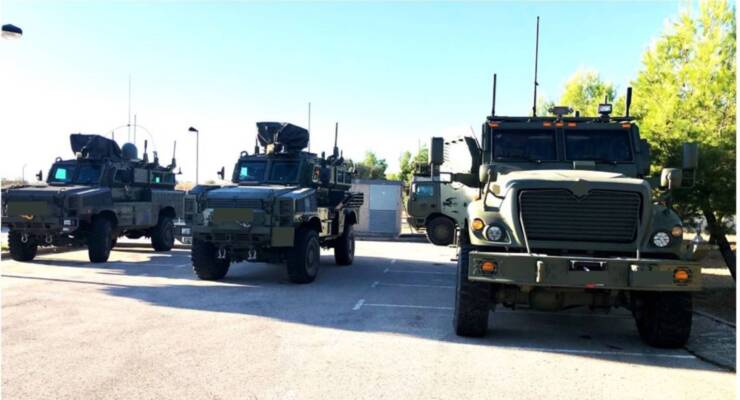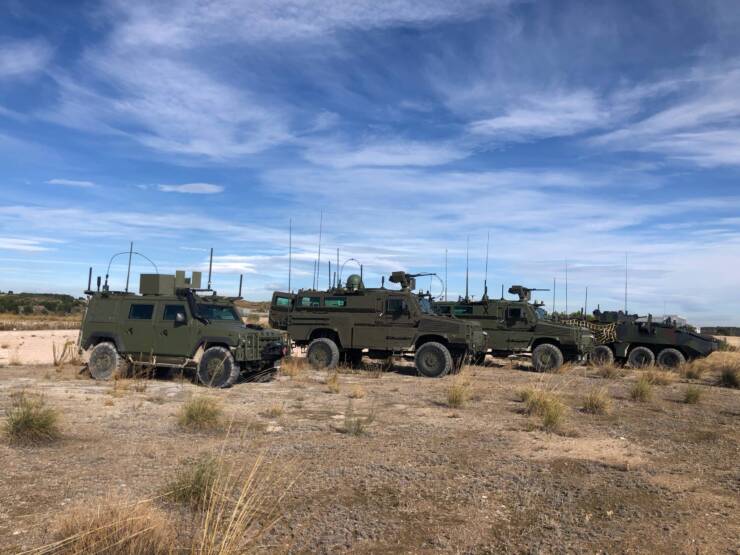
Israeli company Netline Communications Technologies has announced another milestone in its five-year contract with the Spanish Ministry of Defense for the provision of 334 improvised explosive device (IED) jammers with a recently-received order for a further 87 systems. This is in addition to the previous batch delivered in 2020, of 51 systems (in serial production) for 12 prototypes.
Designed to be mounted on vehicles, Netline’s C-Guard RJ is a highly-flexible and resilient modular reactive jamming system. Providing reactive coverage to counter an extensive range of threats, the system constantly scans the spectrum and responds to any detected transmissions by focusing the jamming signal and power to defeat the threat.
Meeting the needs of day-to-day operations, the C-Guard RJ provides on-the-move operation, and is able to withstand harsh environmental conditions. The system has been designed to provide military vehicle crews with ease of operation and maintenance, and simple module replacement, which can be carried out by operating teams (O-level) with nearly zero downtime. The C-Guard RJ can be adjusted for installation and integration into all types of vehicles.
Under the long-term contract, Netline is also providing the Spanish Army with training programs and maintenance.
“This is a large-scale project spread out over time,” says Yallon Bahat, CEO of Netline. “Despite the complex period we are in, Netline is meeting all the project requirements, including keeping to the delivery schedule. The system is designed and adapted to each vehicle according to its specific structure, electrical and mechanical systems and other particulars. We are pleased with the close cooperation with the Spanish forces, and look forward to the continued success of this project, which meets the requirements of forces operating in the field.”

According to the UN Improvised Explosive Devices (IEDs) kill thousands every year, inflict grievous physical injuries, cause dire psychological harm and spread fear and disruption across affected communities. Their impact on the security and stability of affected States is profound: IED attacks not only hinder the political, social and economic development of a country, they also block life-saving humanitarian aid. In recent years, IEDs have become the primary weapon for non-state armed groups across many conflicts.
IED incidents have occurred in 66 countries and territories in the last three years, including in Africa, the Americas, Asia, and Europe. Eight countries saw over 1,000 civilian casualties of IEDs.[The threat of IED attacks is a global problem. Cheap and relatively easy to construct, IEDs can be made anywhere from a wide range of materials – from everyday tools to commercial explosives used in construction and mining. The lack of proper stockpile security of military and commercial explosives – making them susceptible to diversion into illicit hands – also presents a significant security risk.
Cheap and easy to construct, IEDs allow lightly armed and barely trained militants to engage far better equipped security forces. They help tip the balance in an asymmetric conflict by enabling insurgents to inflict casualties without exposing themselves. The unpredictable, combat-avoiding nature of IED attacks can effectively sap the morale of security forces. IEDs significantly limit the mobility of troops as time-consuming sweeps for concealed devices need to be conducted. Forces are weighed down with equipment – metal detectors, electronic counter-measure systems, and robots.
-The writer is an International Roving Correspondent of the publication.








